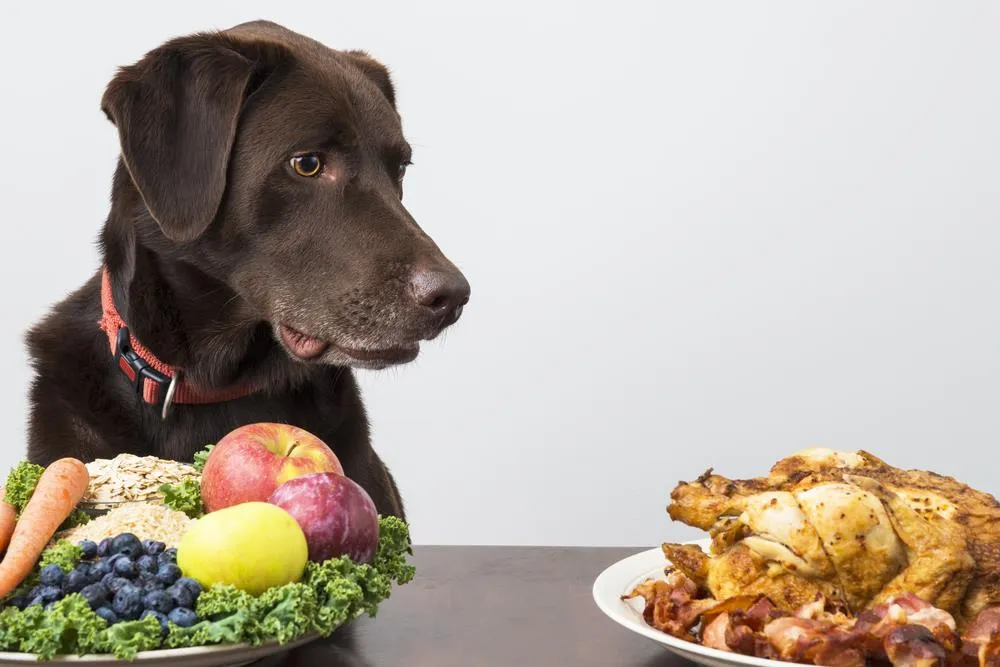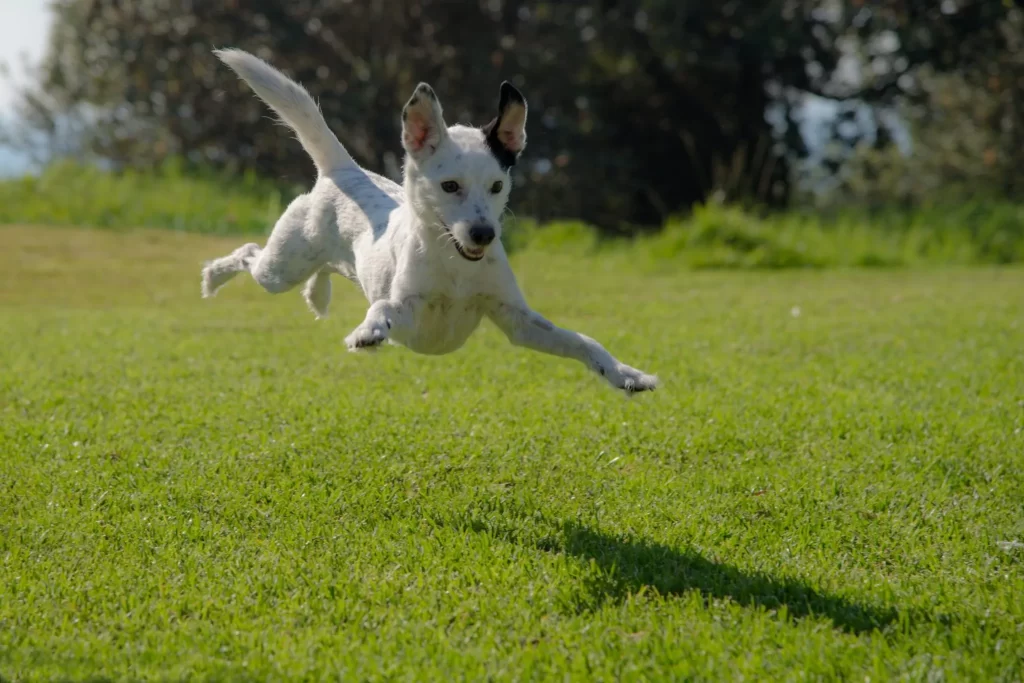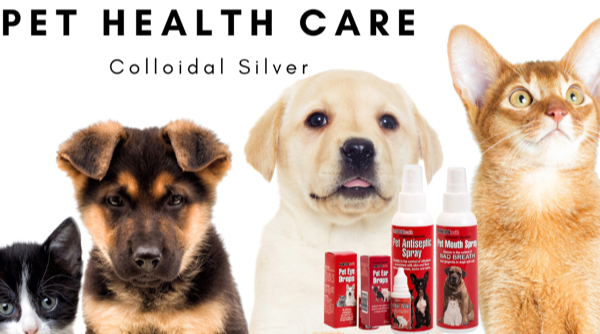Table of Contents
Introduction
As doting pet parents, we always want the best for our furry friends, don’t we? Providing them with love, comfort, and the perfect squeaky toy is just part of our responsibility. Yet, one of the most crucial aspects of their care lies in something far more foundational – their nutrition. And that’s where the concept of holistic nutrition for dogs comes into play. But what does that term really mean, and how can it impact your pet’s life? Let’s delve into the details.
The term ‘holistic’ refers to the belief that various elements are interconnected and integral to overall well-being. When applied to dog nutrition, it means that your pet’s diet should be optimized to support all aspects of their health – physical, mental, and even emotional. Sounds pretty intuitive, right? However, when it comes to the practical application, it can be a bit more complex.

Holistic nutrition focuses on the idea that each dog is unique. Factors like age, breed, lifestyle, and overall health condition play a crucial role in defining the nutritional needs of your pooch. It isn’t simply about feeding your dog to keep hunger at bay. Rather, it is about feeding them the right balance of nutrients to support their immune system, maintain a healthy weight, support organ function, keep their coat shiny, and even to lift their spirits.
Imagine the diversity in nutritional needs between a growing, energetic puppy and a placid, senior dog. While the former would require a high-protein diet for muscle development, the latter may need fewer calories and more fiber to keep their system regular. Similarly, a highly active breed would have different caloric needs compared to a lapdog. Holistic nutrition considers these unique dietary requirements, always aiming to enhance the pet’s quality of life and longevity.
In a world where pet obesity and chronic diseases like diabetes are on the rise, holistic nutrition is more relevant than ever. It promotes preventative care through diet, reducing the risk of many health conditions. Moreover, it can also help manage certain health issues. For instance, if your dog has kidney disease, a diet low in sodium and phosphorus can be beneficial.
Holistic nutrition for dogs is a comprehensive approach that emphasizes whole-body health. It moves beyond mere sustenance, focusing on preventive health and optimal wellness. In the following sections, we will explore various facets of holistic nutrition for dogs, from the importance of quality ingredients and hydration to the role of exercise and the importance of pet eye health. So, stay tuned to embark on this enlightening journey and take a big step towards improving your pet’s health and happiness.
Dog Food Ingredients
Ever picked up a bag of dog food and studied the list of ingredients on the label? If you have, you’d know that it can sometimes read like a foreign language – a mix of terms we are familiar with, some we vaguely recognize, and others that might as well be from another planet. It’s not just about what ingredients go into your dog’s food, but also the quality and source of these ingredients. Here’s why this is so integral to holistic nutrition for dogs.

One of the first things to keep in mind is that dogs are omnivores. This means they need a balanced diet that includes a variety of nutrients from both animal and plant sources. But the quality of these sources matters significantly. A good rule of thumb is to look for dog foods that list a specific type of meat (such as chicken or beef) as the first ingredient, indicating that it makes up the majority of the food.
Beyond the primary protein source, other components of a balanced diet include carbohydrates, fats, vitamins, and minerals. Carbohydrates provide energy and come from sources like sweet potatoes, brown rice, or oats. Fats, particularly omega-3 and omega-6 fatty acids, contribute to a healthy coat and skin, support brain function, and can also provide energy. They can be found in ingredients like flaxseed, fish oil, or chicken fat. Vitamins and minerals are essential for a multitude of body functions, including bone health, blood clotting, and immunity, and can come from a variety of fruits, vegetables, and grains.
But it’s not just about what is included in your dog’s food; it’s also about what should be avoided. Be wary of dog foods that list ‘meat by-product’ or ‘meat meal’ as these terms can be euphemisms for low-quality meat sources. Similarly, avoid foods with artificial colors, flavors, or preservatives, which can cause allergies or other health problems in some dogs.
Grains can be a contentious issue when it comes to dog food. While some dogs can benefit from the fiber and nutrients found in whole grains, others may have grain allergies or intolerances. If your dog has a known grain allergy or you suspect they might have one, look for grain-free dog food alternatives. However, make sure that the diet is still balanced and not overly heavy on certain nutrients.
While organic dog food can be an excellent choice due to its lack of synthetic additives and GMO ingredients, it’s essential to understand that ‘organic’ is not synonymous with ‘nutritious.’ An organic dog food still needs to offer a balanced diet to be beneficial for your pet.
It’s also worth noting that the most expensive dog food isn’t always the best. Rather than looking at the price tag, pay attention to the ingredients list and the nutritional information. And, when in doubt, your vet can be an invaluable resource in helping you choose the right food for your pet.
In essence, the core of holistic nutrition lies in feeding your dog a diet made from high-quality, natural, and easily recognizable ingredients. The saying “You are what you eat” doesn’t just apply to humans – it’s true for our furry friends as well. Good nutrition is one of the most powerful tools we have to keep our dogs healthy and happy for as long as possible. So the next time you’re shopping for dog food, take a closer look at the ingredients – your dog will thank you for it.

Vitamins and Supplements
Just as we sometimes turn to vitamins and supplements to bolster our health, our canine companions can also benefit from these nutritional add-ons. While a well-balanced, high-quality dog food should provide most of the essential nutrients your dog needs, there are instances where supplements can play a beneficial role. Let’s delve into the world of vitamins and supplements in holistic nutrition for dogs.
Before supplementing your dog’s diet, it’s crucial to understand that more isn’t always better when it comes to vitamins and minerals. An excess of certain nutrients can lead to health problems. For example, too much calcium can cause skeletal issues in large breed puppies, and excess vitamin A can lead to dehydration and joint pain. Therefore, it’s always essential to consult with your veterinarian before starting any supplement regimen.
Different vitamins and minerals serve various functions in a dog’s body:
- Vitamins A, D, E, and K are fat-soluble vitamins, which means they are stored in the body’s fat reserves. Vitamin A supports vision and immune health, Vitamin D helps in the absorption of calcium and phosphorus for healthy bones, Vitamin E works as an antioxidant, and Vitamin K aids in blood clotting.
- B Vitamins are water-soluble, meaning they can’t be stored in the body and must be replenished regularly. They help in energy production, enzyme function, and maintaining healthy skin and coat.
- Minerals like calcium, phosphorus, potassium, and magnesium play a crucial role in bone health, nerve function, muscle contraction, and maintaining fluid balance.
That said, there are some common supplements that many dog owners and vets swear by:
- Fish Oil: Rich in omega-3 fatty acids, fish oil can help reduce inflammation, promote a shiny coat and healthy skin, and support heart and brain health.
- Glucosamine: Often combined with chondroitin, glucosamine is widely used for its potential to support joint health and mobility, especially in older dogs or breeds prone to joint issues.
- Probiotics: To support digestive health, probiotics are beneficial bacteria that can help maintain a healthy gut, improve digestion, and bolster the immune system.
- Antioxidants: Antioxidants such as Vitamins C and E can help boost the immune system and are often recommended for older dogs to counteract the effects of aging.
- Lysine: This essential amino acid is often used as a supplement for dogs with viral infections like kennel cough or to support general immune health.
- CBD Oil: Though more research is needed, CBD oil is gaining popularity for potential benefits such as easing anxiety, reducing pain, and promoting overall well-being.
Remember, the need for supplements can depend on your dog’s age, breed, size, lifestyle, and current health status. While some dogs may benefit from supplements, others might not require any beyond a well-balanced diet. It’s also essential to note that supplements cannot substitute a balanced diet and should be viewed as a way to enhance overall nutrition.
Holistic nutrition for dogs emphasizes the concept of using food as medicine, and when diet alone isn’t enough, high-quality supplements can step in to fill nutritional gaps and support your pet’s health. The goal is to keep your dog feeling as vibrant and healthy as they can be – because isn’t that what we all want for our beloved furry friends?
Dietary Requirements Based on Life Stage
Understanding the dietary needs of your dog based on their life stage is fundamental to holistic nutrition for dogs. Just as a toddler has different nutritional needs than a teenager or senior citizen, so do puppies, adult dogs, and senior dogs require different diets to support their health optimally. Let’s explore these different requirements.
Puppies
Puppies are full of energy and grow rapidly, which means they need more calories and nutrients than adult dogs. A diet high in quality protein is essential for muscle development, and a balanced amount of calcium and phosphorus is needed for bone growth. However, too much of these minerals can be harmful, especially in large breed puppies, as it can lead to joint problems later in life. Puppy diets also need to support their developing immune system with adequate vitamins and minerals.
Adult Dogs
Once your dog reaches adulthood, their nutritional needs will largely depend on their size, breed, and activity level. In general, adult dogs require a balanced diet with high-quality protein, healthy fats, and complex carbohydrates. Unlike growing puppies, adult dogs don’t require as many calories, so it’s important to avoid overfeeding to prevent obesity. Maintaining an appropriate weight is crucial for an adult dog’s overall health and longevity.

Senior Dogs
As dogs age, their metabolism slows down, and they become less active. This can lead to weight gain, so their diet may need to be adjusted to lower their caloric intake. However, their need for high-quality protein remains, as it helps to maintain muscle mass and support a healthy immune system. Some older dogs may also benefit from supplements such as glucosamine and chondroitin for joint health, omega-3 fatty acids for cognitive function, and probiotics for digestive health. Senior dogs often experience dental issues, so the texture of their food may need to be adjusted for easier chewing and digestion.
Special Considerations
Apart from these general life stages, there may be special conditions or circumstances that affect your dog’s dietary requirements. For instance, pregnant or lactating dogs require more calories and nutrients to support their puppies. Working dogs or highly active breeds also require more calories to sustain their energy levels. Dogs with certain health conditions such as diabetes, kidney disease, or food allergies may require specialized diets.
Understanding your dog’s nutritional needs at each life stage allows you to make informed decisions about their diet, ensuring that they get all the necessary nutrients for their health. Remember that changes in diet should be made gradually to avoid upsetting your dog’s stomach, and any major dietary changes or concerns should be discussed with your vet.
Holistic nutrition is all about providing a balanced, natural diet that fits your dog’s age, breed, and health condition. It’s about respecting their individuality and providing them with the nutrition they need at every stage of their life. After all, a healthy dog is a happy dog, and isn’t that the ultimate goal for all pet parents?
Food Allergies and Intolerances
Food allergies and intolerances can be a serious concern for many dog owners. When it comes to holistic nutrition for dogs, understanding these issues is crucial to providing your pet with a diet that not only nourishes them but also doesn’t harm their health. So, let’s explore what food allergies and intolerances mean for your furry friend.
Food Allergies in Dogs
A food allergy occurs when a dog’s immune system mistakenly identifies a specific food ingredient as harmful and mounts a defensive response. This can result in various symptoms, such as skin irritation (itching, redness, and hot spots), gastrointestinal problems (diarrhea and vomiting), chronic ear infections, and in rare cases, anaphylactic shock.

Common food allergens for dogs include beef, dairy, wheat, egg, chicken, lamb, soy, pork, rabbit, and fish, though a dog can technically be allergic to any food. It’s worth noting that food allergies in dogs are less common than environmental allergies, like those to dust mites or pollen.
If you suspect your dog has a food allergy, it’s important to consult with your veterinarian. They may suggest an elimination diet, which involves feeding your dog a novel protein and carbohydrate source that they’ve never had before and gradually reintroducing other foods to identify which causes the allergic reaction.
Food Intolerances in Dogs
Unlike food allergies, which involve the immune system, food intolerances are a digestive issue. Essentially, it means your dog’s system can’t properly digest a certain ingredient. For example, some dogs are lactose intolerant, meaning they can’t digest lactose in dairy products.
Symptoms of food intolerance can include gas, bloating, diarrhea, or vomiting. It doesn’t cause an allergic reaction but can still cause significant discomfort for your dog.
The management of food intolerance involves avoiding the problematic ingredient. This may require a bit of detective work to figure out what food or ingredient is causing the issue, but with careful observation and potentially some guidance from your vet, you can ensure your dog gets a diet that is both nutritious and easy on their stomach.
Whether it’s a food allergy or intolerance, finding out your dog can’t have a certain food can be concerning. But with many different dog food options available today, including limited ingredient diets, grain-free diets, and novel protein diets, it’s easier than ever to find a solution that works for your dog.
Taking food allergies and intolerances into account is a vital part of holistic nutrition for dogs. After all, optimal nutrition is about more than just feeding your dog a balanced diet—it also means avoiding anything that might harm them. Remember, every dog is unique, and what works for one might not work for another. So, always strive to provide a diet tailored to your dog’s specific needs.
Weight Management
Weight management is a significant component of holistic nutrition for dogs. Maintaining a healthy weight is not just about looks; it’s primarily about health. Obesity in dogs can lead to a slew of health problems, such as diabetes, heart disease, arthritis, and even shortened life expectancy. So, how do we ensure our furry friends stay within a healthy weight range?
Understanding Obesity in Dogs
Obesity is an excess of body weight, usually in the form of fat, and it often happens when a dog’s calorie intake exceeds their calorie expenditure. Factors contributing to obesity can include overfeeding, lack of exercise, certain breeds’ genetic predisposition, and underlying medical conditions like hypothyroidism.

Prevention and Management of Obesity
The first step towards managing your dog’s weight is recognizing the problem. Your vet can help determine whether your dog is overweight or obese based on body condition scoring, which involves assessing your dog’s body shape and feeling for certain landmarks, like the ribs.
Next, consider your dog’s diet. Feeding a balanced, portion-controlled diet is key. Many dog owners unintentionally overfeed their pets, so it’s important to follow the feeding guidelines on your dog food packaging and adjust for your dog’s specific needs. Remember, treats count too! They should make up no more than 10% of your dog’s daily caloric intake.
Exercise is also essential for weight management. Regular physical activity helps burn calories, build lean muscle mass, and can even boost your dog’s mood. The type and amount of exercise will depend on your dog’s age, breed, and health status. Options range from daily walks and fetch games to more structured activities like agility training.
In some cases, an underlying medical condition might contribute to weight gain, and treating it can help with weight management. For example, hypothyroidism, a common endocrine disorder in dogs, can lead to weight gain despite a normal diet and exercise. If your dog is gaining weight inexplicably, a trip to the vet is a good idea.
Finally, remember that weight loss in dogs, like humans, should be gradual. Rapid weight loss can lead to other health problems, so a slow, steady approach is best.
In holistic nutrition for dogs, weight management is about balance. It’s about feeding the right amount of a balanced, nutrient-rich diet and pairing it with an appropriate exercise routine. By managing your dog’s weight, you’re doing more than just helping them look good—you’re enhancing their quality of life and potentially adding years to it. After all, our canine companions depend on us to take care of them, and ensuring they maintain a healthy weight is a crucial part of that responsibility.
Special Dietary Needs (e.g. for Health Conditions)
Dogs, like humans, can have specific health conditions that necessitate dietary modifications. In the world of holistic nutrition for dogs, acknowledging and addressing these needs can drastically improve a dog’s quality of life and even potentially mitigate the effects of certain diseases. Let’s delve into some health conditions and their associated dietary requirements.
Kidney Disease
In dogs with kidney disease, the kidneys aren’t able to filter waste products from the blood efficiently. Dietary adjustments for these dogs often include a reduction in protein and phosphorus to lighten the kidneys’ workload. Additionally, providing increased omega-3 fatty acids can help decrease inflammation in the kidneys.
Heart Disease
Dogs with heart disease often benefit from diets that are low in sodium to prevent fluid buildup and reduce the workload on the heart. Certain supplements, such as taurine and L-carnitine, can also support heart health. Omega-3 fatty acids from fish oil can be beneficial due to their anti-inflammatory properties.
Diabetes
Canine diabetes involves managing blood sugar levels. A diet high in fiber can help regulate blood sugar by slowing the entrance of glucose into the bloodstream. Diabetic dogs also need to maintain a consistent diet and feeding schedule to keep their blood sugar levels steady.
Pancreatitis
Dogs with pancreatitis, an inflammation of the pancreas, often require a diet low in fat, as fat can stimulate the pancreas to secrete digestive enzymes and exacerbate the condition.
Food Allergies or Sensitivities
Dogs with food allergies or sensitivities might require a hypoallergenic diet. This often means a diet that doesn’t contain the ingredient(s) they’re allergic to. It could be a diet with a novel protein source (one they haven’t been exposed to) or a hydrolyzed protein diet, where the protein is broken down into such small pieces that the immune system doesn’t recognize it as an allergen.

Joint Diseases
Dogs with arthritis or other joint diseases can benefit from diets supplemented with omega-3 fatty acids for their anti-inflammatory effects. Other supplements such as glucosamine and chondroitin sulfate can also be beneficial for joint health.
Obesity
For overweight dogs, a weight loss plan often involves a diet lower in calories but still high in nutrients and fiber. Increasing the protein content while reducing fat can also help maintain muscle mass during weight loss.
Dogs with certain health conditions may have special dietary needs, and addressing these can significantly contribute to managing their health condition. If your dog has a specific health condition, a consultation with your vet or a veterinary nutritionist is always the best first step. They can provide guidance on the best diet and supplement regimen for your furry friend. Holistic nutrition is about recognizing your dog as an individual and tailoring their nutrition to their unique needs, contributing to a healthier, happier life.
Home-Cooked Meals vs. Commercial Dog Food
When it comes to holistic nutrition for dogs, the debate between home-cooked meals and commercial dog food is often at the forefront. Both have their advantages and potential pitfalls, and what’s best will largely depend on your specific dog and your lifestyle. Let’s delve into the pros and cons of each approach.
Home-Cooked Meals
Home-cooked meals allow for complete control over what goes into your dog’s food. You can choose high-quality, fresh ingredients and avoid additives or fillers. This is especially beneficial for dogs with specific allergies or food sensitivities, as you can ensure they’re not exposed to problematic ingredients. Plus, many dogs find home-cooked meals delicious!
Holistic Dog Nutrition
However, one of the biggest challenges of home-cooked meals is ensuring they meet all of your dog’s nutritional needs. Dogs require a balance of proteins, carbohydrates, fats, vitamins, and minerals in specific proportions, which can be tricky to achieve without guidance from a veterinarian or a pet nutritionist. There’s also the time commitment, as preparing meals for your dog can be time-consuming.
Commercial Dog Food
Commercial dog food, whether it’s kibble or canned, has been scientifically formulated to provide a balanced diet for dogs. High-quality brands use good ingredients and adhere to the nutritional standards set by the Association of American Feed Control Officials (AAFCO). This takes the guesswork out of providing a balanced diet for your dog.
On the downside, not all commercial dog foods are created equal. Some contain low-quality ingredients, preservatives, artificial colors, and fillers that may not be beneficial for your dog’s health. Additionally, some dogs with specific allergies or intolerances may react to ingredients commonly found in commercial foods.
The Verdict
The choice between home-cooked meals and commercial dog food often comes down to a balance between time, cost, convenience, and personal preference. If you choose to home-cook your dog’s meals, consider consulting with a pet nutritionist to ensure you’re providing a balanced diet. If you opt for commercial food, choose a high-quality brand and consider your dog’s life stage, breed, and health status.
Some dog owners opt for a hybrid approach, feeding commercial dog food as a base and supplementing with home-cooked foods for variety and added nutrition.
In the end, whether it’s home-cooked meals or commercial food, the key to holistic nutrition is providing a balanced, nutrient-rich diet that caters to your dog’s specific needs. Remember that every dog is unique, so there’s no one-size-fits-all solution when it comes to the best diet for your furry friend. As long as your dog is happy, healthy, and thriving, you’re on the right track.
Organic and Natural Dog Food
Organic and natural dog food are becoming increasingly popular options in the pet food market. Many pet owners are drawn to these options in the pursuit of providing the best diet for their furry friends. But what exactly do these terms mean, and are they really better? Let’s dive in and examine the details.
Organic Dog Food
Organic dog food, similar to organic food for humans, refers to the way the ingredients are grown and processed. Organic ingredients are grown without synthetic fertilizers, pesticides, and GMOs (genetically modified organisms). Meat used in organic dog food should come from animals raised on organic feed and without the use of antibiotics or hormones.
The key benefit of organic dog food is that it reduces your pet’s exposure to synthetic pesticides, fertilizers, and other chemicals used in conventional farming. However, it’s essential to understand that the “organic” label doesn’t guarantee that the food is nutritionally superior or that your dog will like it better.
To be truly organic, the dog food must be certified by an agency such as the USDA. If it says “made with organic ingredients,” it means at least 70% of the ingredients are organic. If it simply states “organic,” 95% or more of the ingredients must be organic.
Natural Dog Food
Natural dog food should consist of ingredients that are minimally processed and do not contain artificial colors, flavors, or preservatives. However, the term “natural” can be somewhat misleading as it is less regulated than “organic.” It’s important to note that natural does not necessarily mean organic or even healthy.
While natural dog food can offer a diet closer to what dogs would eat in the wild, the term doesn’t necessarily ensure the food’s quality. Thus, it’s crucial to check the ingredient list and understand what you’re buying.
The Verdict
Whether you choose organic, natural, or conventional dog food, the most crucial factor is that the food meets your dog’s nutritional needs. A well-balanced diet that supports your dog’s health, energy levels, and longevity is the primary goal.
When choosing organic or natural food, always look for the AAFCO (Association of American Feed Control Officials) statement on the packaging to ensure that the food is complete and balanced for your dog’s life stage.
While organic and natural dog foods can reduce exposure to certain chemicals and are often made with higher-quality ingredients, they are typically more expensive. Every pet owner must balance these benefits against their budget and their pet’s individual dietary needs.
Remember, when it comes to holistic nutrition for dogs, what matters most is providing a diet that supports your pet’s overall health and wellbeing, tailored to their specific needs, breed, age, and health conditions. As always, when making significant changes to your pet’s diet, it’s wise to consult with your vet or a pet nutrition expert.
Hydration and Dog Health
Just like for humans, hydration is crucial for dogs’ health. Water plays a fundamental role in every bodily function, from digestion and nutrient absorption to maintaining body temperature and lubricating joints. So, let’s unpack why keeping your canine companion properly hydrated is a fundamental part of holistic dog nutrition.
The Importance of Hydration
Water is vital for dogs for various reasons. It aids in digestion, helping to absorb and transport nutrients throughout their bodies. It’s essential for maintaining body temperature, as dogs primarily regulate their body heat through panting, which requires moisture.
Water also helps flush out toxins and waste products from the body, supports brain function, lubricates joints, and ensures healthy skin and a shiny coat. Moreover, each cell in the body needs water to function properly, from muscle cells to nerve cells.
Signs of Dehydration
Dehydration in dogs can lead to serious health issues. Symptoms can range from mild, such as dry nose and gums, panting, and loss of appetite, to severe, including lethargy, sunken eyes, and poor skin elasticity. If you suspect your dog is dehydrated, it’s essential to seek veterinary care immediately.
How Much Water Does Your Dog Need?
The amount of water a dog needs can depend on various factors, including their size, age, diet, and activity level. A general rule of thumb is that dogs should drink about an ounce of water per pound of body weight each day. However, dogs that are more active or live in hot climates may require more.
If your dog eats wet food, they’ll receive some of their water intake from their meals. However, this should not replace their water intake, and fresh water should always be readily available.
Encouraging Hydration
Ensuring your dog stays hydrated involves more than just filling their water bowl. Here are some tips to encourage your dog to drink more:
- Keep fresh water available at all times, in a clean bowl.
- If you have a large house, consider having multiple water stations.
- Some dogs prefer running water and may drink more if provided with a pet water fountain.
- You can also add moisture to their diet through wet food or by adding broth to their dry food.
Remember, maintaining proper hydration is just as important as providing a balanced diet when it comes to holistic nutrition for dogs. By keeping your canine companion well-hydrated, you’re supporting their overall health and ensuring they’re equipped to live a happy, healthy life.
Exercise and Nutrition
Exercise and nutrition are the cornerstones of health, not just for humans, but also for our beloved dogs. They work hand-in-hand to ensure that your furry friend stays in peak condition. A balance of proper nutrition and regular physical activity is essential to maintaining a dog’s optimal body condition, enhancing their quality of life and longevity. Let’s dig deeper into how these two factors intertwine in the context of holistic nutrition for dogs.
The Interplay of Exercise and Nutrition
Just like us, dogs need a balanced diet to fuel their bodies for physical activity. The right nutrition provides the energy your dog needs to engage in exercise and supports recovery and muscle repair afterwards.

Conversely, regular exercise impacts a dog’s nutritional needs. Active dogs burn more calories and may require a diet higher in protein and overall calorie content to support their energy needs. On the other hand, less active or senior dogs may need fewer calories to prevent weight gain.
Nutrition for Active Dogs
Active dogs, whether they’re working dogs or just love to play fetch for hours, usually require a higher protein diet. Protein supplies the necessary amino acids for muscle repair and recovery. They also need enough carbohydrates for quick energy and fats for sustained energy.
Be mindful not to feed your dog right before or immediately after intense exercise as this can lead to digestive problems, including a dangerous condition called bloat, especially in large breed dogs. Allow some time for digestion before engaging in heavy exercise and some cool-down period afterwards before feeding.
Exercise as Part of a Weight Management Strategy
Regular exercise is a vital part of any weight management strategy. If your dog needs to lose a few pounds, consider increasing their activity level. However, it’s essential to adjust their caloric intake accordingly. Often, dogs become overweight not just due to lack of exercise but due to overfeeding or feeding calorie-dense food.
Always consult with your vet before putting your dog on a weight loss plan, as they can provide guidance on a safe and effective strategy tailored to your dog’s needs.
Impact of Life Stage and Health Condition
A dog’s life stage and health condition can affect both their nutritional needs and exercise capacity. Puppies have different dietary requirements compared to adult dogs, and senior dogs may have mobility issues that limit their exercise ability. Certain health conditions may require dietary modifications and could affect a dog’s ability to exercise.
The Bottom Line
Balancing exercise and nutrition is a key aspect of holistic dog care. It’s not just about keeping your dog fit and trim; it’s about enhancing their quality of life, boosting their mood, and supporting overall wellbeing.
As always, every dog is unique. What works best for one may not work for another. Therefore, always consult with your vet or a pet nutrition expert to create a tailored nutrition and exercise plan that suits your dog’s breed, age, size, and overall health condition. This way, you’ll ensure that your furry friend stays healthy, happy, and ready to enjoy life to the fullest.
Pet Eye Health (Importance of Eye Drops for Dogs)
Pet eye health is an often overlooked but essential aspect of a dog’s overall wellbeing. Our canine companions can experience a variety of eye-related issues, from minor irritations to serious conditions that could lead to vision loss if left untreated. That’s where eye drops come into the picture. They can play a crucial role in maintaining your dog’s eye health and treating a variety of eye conditions. Let’s explore this in more depth.
Common Eye Issues in Dogs
Dogs can be prone to a variety of eye problems. These include dry eye (keratoconjunctivitis sicca), conjunctivitis (pink eye), eye infections, allergies, corneal ulcers, and even glaucoma. Symptoms of eye issues can include redness, excessive tearing, discharge, squinting, pawing at the eye, or visible discomfort.
Eye issues can occur due to various factors such as breed predispositions, age, environmental irritants, trauma, or underlying health conditions. Regularly checking your dog’s eyes for any signs of irritation, redness, or other changes can help catch issues early before they become more serious.

Role of Eye Drops in Maintaining Eye Health
Eye drops can play a crucial role in both treating existing eye conditions and maintaining overall eye health in dogs. They can provide relief from symptoms, aid in healing, and in some cases, prevent further deterioration of the eye health.
For example, lubricating eye drops can help manage dry eye, a condition where the eyes do not produce enough tears leading to discomfort and potential damage to the cornea. Antibiotic eye drops can be prescribed by your vet to treat bacterial infections. Steroid eye drops may be used for certain inflammatory conditions, while specific eye drops can help manage glaucoma.
In the context of holistic dog health, some pet owners use saline eye drops or eyewashes to help cleanse their dogs’ eyes. This can help remove environmental irritants such as dust or pollen, reduce allergen exposure, and provide general comfort.
Using Eye Drops Correctly
When using eye drops for dogs, it’s essential to follow your vet’s instructions carefully. Never use human eye drops on dogs without consulting your vet, as some ingredients can be harmful to dogs.
Make sure to administer the correct dosage and complete the full course of medication if prescribed. While applying the drops, be careful not to touch the dropper to the eye to avoid injury or contamination of the medication.
The Bottom Line
While eye drops can be a vital tool in managing eye health, remember that they are just one part of the puzzle. Regular vet check-ups are crucial as some eye conditions may not show obvious symptoms until they’ve significantly progressed.
In the context of holistic health, providing a balanced diet rich in antioxidants can also support eye health. Nutrients like vitamins A, C, and E, along with the carotenoids lutein and zeaxanthin, can help protect eye health.
Remember, your dog’s eyes are delicate, and any signs of distress or changes in appearance should warrant a visit to the vet. By taking a proactive approach to eye care, including the use of eye drops when necessary, you can help ensure your four-legged friend’s eyes stay as bright and healthy as possible.
FAQ’s
In the pursuit of understanding holistic nutrition for dogs, treatment, as well as weight monitoring it in the unique context of South Africa, many questions frequently arise. To address these inquiries, we’ve compiled a list of the 10 most commonly asked questions about this subject.
What is holistic nutrition?
Holistic nutrition is a type of nutrition that takes into account the whole animal, including its physical, mental, and emotional health. It focuses on providing dogs with the nutrients they need to thrive, both physically and mentally.
Why is holistic nutrition important for dogs?
Holistic nutrition is important for dogs because it can help to improve their overall health and well-being. Dogs that eat a holistic diet are less likely to suffer from obesity, allergies, and other health problems. They are also more likely to have a healthy coat, bright eyes, and a strong immune system.
What are the benefits of holistic nutrition for dogs?
The benefits of holistic nutrition for dogs include:
Improved overall health and well-being
Reduced risk of obesity, allergies, and other health problems
Healthy coat, bright eyes, and strong immune system
Increased energy levels
Improved behavior
Longer lifespan
What are the drawbacks of holistic nutrition for dogs?
The drawbacks of holistic nutrition for dogs include:
Can be more expensive than traditional diets
Can be more difficult to find
May not be suitable for all dogs
How do I choose a holistic diet for my dog?
When choosing a holistic diet for your dog, it is important to consider their individual needs. Some factors to consider include your dog’s age, breed, activity level, and any health conditions they may have. You should also talk to your veterinarian to get their recommendations.
Where can I buy holistic dog food?
Holistic dog food can be purchased at most pet stores. You can also find it online or at some health food stores.
How do I transition my dog to a holistic diet?
When transitioning your dog to a holistic diet, it is important to do so gradually. Start by mixing the new food with your dog’s current food, and gradually increase the amount of new food over a period of 1-2 weeks. This will help to prevent stomach upset.
What are some common mistakes people make when feeding their dogs holistic diets?
Some common mistakes people make when feeding their dogs holistic diets include:
Not feeding their dogs enough food
Not feeding their dogs a variety of foods
Not feeding their dogs a balanced diet
Not talking to their veterinarian about their dog’s diet
What are some resources for learning more about holistic nutrition for dogs?
There are many resources available for learning more about holistic nutrition for dogs. Some of these resources include:
Books
Websites
Magazines
Veterinarians
What are some tips for feeding my dog a holistic diet?
Here are some tips for feeding your dog a holistic diet:
Choose a high-quality, holistic dog food that is appropriate for your dog’s age, breed, activity level, and any health conditions they may have.
Feed your dog a variety of foods to ensure they are getting all the nutrients they need.
Talk to your veterinarian about your dog’s diet and get their recommendations.
We hope this list offers you valuable insights into holistic nutrition for dogs. By addressing these common questions, we aim to assist you in your journey towards a healthier heart and overall wellbeing.
Summary
Embracing holistic nutrition for dogs means taking a broad, comprehensive view of your pet’s health. It’s not just about what they eat, but their overall lifestyle and well-being. Holistic nutrition goes beyond the basic dietary needs, recognizing that a dog’s health is the sum of many parts, all of which interact and influence each other.
A high-quality diet forms the basis of good health, supplying the necessary nutrients your pet needs to thrive. This includes proteins, fats, carbohydrates, vitamins, minerals, and water, which are all critical for various bodily functions, from energy production and growth to immune function and tissue repair.
Monitoring Weight and Special Dietary Needs
Monitoring your pet’s weight is also crucial. Both underweight and overweight dogs can face a range of health issues, so it’s important to strike the right balance. This involves feeding the right amount and adjusting portion sizes based on your dog’s age, breed, size, activity level, and health status.
Some dogs may have special dietary needs due to health conditions like allergies, diabetes, kidney disease, or certain breed-specific issues. For these dogs, a customized diet may be required, often under the guidance of a vet or pet nutrition expert.
The Role of Exercise and Hydration
Understanding the role of exercise and hydration in your dog’s health is vital. Regular exercise helps maintain a healthy weight, supports cardiovascular health, keeps joints flexible, and even has mental health benefits. It’s also a great way for you and your dog to bond.
Hydration, on the other hand, is vital for various bodily functions. It aids in digestion, helps maintain body temperature, supports nutrient absorption, and is critical for kidney function. Ensuring your dog always has access to clean, fresh water is a simple yet crucial part of their care.
Eye Care for Dogs
Taking care of your pet’s eyes is another key aspect of holistic dog health. Just like humans, dogs can experience a variety of eye issues, from dryness and allergies to infections and more serious conditions. Regular eye checks can help catch problems early, and eye drops can play a crucial role in treating and managing various eye conditions.
Conclusion
Embracing a holistic approach to your dog’s nutrition and overall health can feel overwhelming, but remember, every small step you take can have a big impact on your pet’s health. By paying careful attention to their diet, weight, exercise, hydration, and eye health, you’re not just meeting their basic needs but enhancing their overall quality of life.
With these insights, you’re well on your way to providing the best possible care for your beloved pet. The ultimate goal is to ensure they stay healthy, happy, and with you for many more exciting years to come. Remember, your love and care are the most important elements of your pet’s health and happiness.


